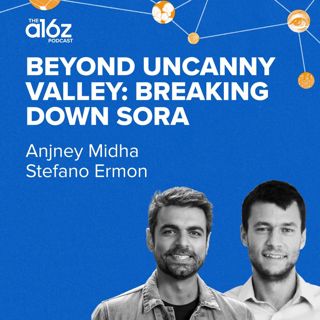
What the Narrow Waist of the Internet Means for Innovation Today
Here is Ali's tweetstorm on the Narrow Waist of Blockchain Computing
24 Apr 202040min

IT'S TIME TO BUILD
“It's Time to Build” by Marc Andreessen. You can also find and share this essay at a16z.com/build
21 Apr 202012min

Introducing Read Alouds
We wanted to let you know about a special new series of posts occasionally read out loud from us (you can learn more about the why and why now in episode #500 on how we podcast); we may release these in a separate feed in future, for now, the first episode is next in this feed. Thank you for listening!You can also check out our other shows and series:16 MinutesHustlin' Tech
21 Apr 202033s

The Passion Economy: Redefining Work
This episode of the a16z Podcast covers the the rise of online platforms that enable people to make a living off their unique interests and skills. It's a trend that's become increasingly relevant as the demand for virtual work grows. The discussion -- with Patreon cofounder and CTO Sam Yam and a16z consumer tech partner Li Jin in conversation with Lauren Murrow -- covers the new forms of work made possible by these online platforms, why creators today are effectively making more money off fewer fans, and what all of this means for the future of entrepreneurship.See more on the Passion Economy, metrics for it, 100 True Fans, and more at a16z.com/creatoreconomies.
18 Apr 202026min
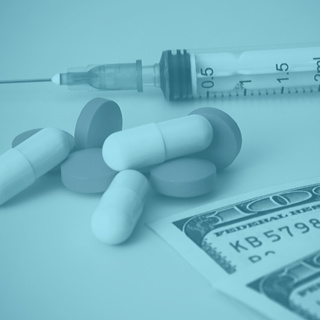
When Bad Policy = Bad Business Models = Bad Public Health
with @JorgeCondeBio, @julesyoo, and @omnivorousreadIn some ways, the coronavirus feels like it came out of nowhere—a kind of Black Swan event. But at the same time, it's been exposing a lot of the fundamental flaws in our healthcare system that now feel like a perfect storm coming together... and have hurt our ability to address the problem that we should really have seen coming.In this episode, a16z General Partners Jorge Conde and Julie Yoo talk with Hanne Tidnam about some of those big forces and dynamics in the healthcare system, at the intersection of business, policy, and public health: how in healthcare like perhaps nowhere else, broken policy can lead to broken business models that, in the wrong circumstances, can then lead major failures in public health like the one we’re seeing today; where we’ve seen this before, in the markets of vaccines, antibiotics, and diagnostics; and what should be different next time, so that when a new pandemic hits we aren’t facing another perfect storm.
16 Apr 202024min
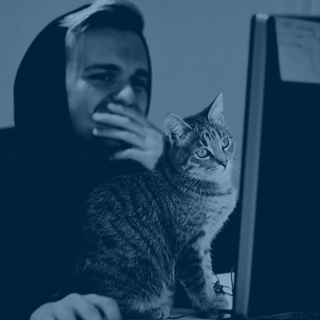
Moving to Remote Development (and Work)
From agile project management to asynchronous collaboration, development teams have pioneered many of the tools and best practices for remote work. However, new shelter-in-place orders have more organizations moving to remote development -- and remote work -- often quickly and without a lot of time to plan.Will remote work be our new reality, even after the current pandemic? And if so, what are the current technologIes and practices that support organizational communication and alignment for distributed teams, development and otherwise? In this hallway-style podcast, Jason Warner, the CTO of GitHub, and a16z General Partner David Ulevitch cover how working from home is evolving our software as well as how we use it -- from communication tools and best practices to interviewing and hiring when you can’t see someone face to face.
15 Apr 202021min
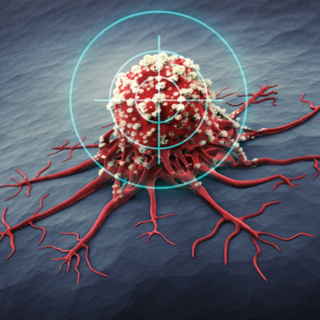
Virtual Oncology
with @vintweeta @pbcancerdoc @sumitshahmd @omnivorousreadCoronavirus is now disrupting the entire health care system, not just because of the burden of dealing with the actual disease itself, but because of everything else that's had to grind to a halt. One of the areas where we really worry about things coming to a total stop like that is, of course, cancer treatment, which can often feel like a race against the clock even under the best conditions.In this episode, Dr. Bobby Green, MD (Community Oncologist and Chief Medical Officer, Flatiron Health) and Dr. Sumit Shah (Oncologist and Head of Digital Health, Stanford Cancer Center) join a16z's Vineeta Agarwala (physician and general partner) and Hanne Tidnam to talk about what is happening to oncology during the outbreak—how treatment is affected; what kind of clinical decisions oncologists and patients are having to make, and how they're making them; the tech tools that specialists are using, and how they could improve; and what happens to oncology as a whole when it's forced to go virtual.
10 Apr 202036min
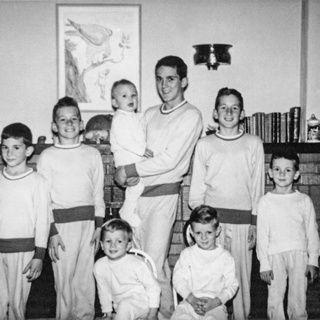
The Story of Schizophrenia
Descriptions of the mental illness we today call schizophrenia are as old as humankind itself. And more than likely, we are are all familiar with this disease in some way, as it touches 1% of us—millions of lives—and of course, their families. In this episode, we dive into the remarkable story of one such American family, the Galvins: Mimi, Don, and their 12 children, 6 of whom were afflicted with schizophrenia.In his new book, Hidden Valley Road: Inside the Mind of an American Family, Robert Kolker follows the family from the 1950s to today, through, he writes, "the eras of institutionalization and shock therapy, the debates between psycho-therapy versus medication, the needle-in-a-haystack search for genetic markers for the disease, and the profound disagreements about the cause and origin of the illness itself." Because of that, this is really more than just a portrait of one family; it’s a portrait of how we have struggled over the last decades to understand this mysterious and devastating mental illness: the biology of it, the drivers, the behaviors and pathology, the genomics, and of course the search for treatments that might help, from lobotomies to ECT to thorazine.Also joining Robert Kolker and a16z's Hanne Tidnam in this conversation is Stefan McDonough, Executive Director of Genetics at Pfizer World R&D, one of the genetic researchers who worked closely with the Galvins. The conversation follows the key moments where our understanding of this disease began to shift, especially with new technologies and the advent of the Human Genome Project—and finally where we are today, and where our next big break might come from.
7 Apr 202037min
